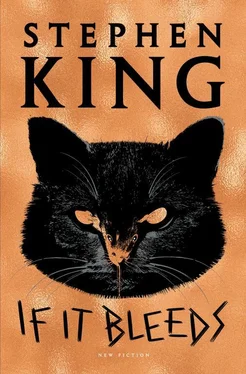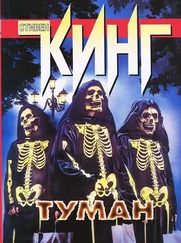As I was getting it, the question I kept forgetting to ask him recurred. “Why did you move here, Mr. Harrigan? You could live anywhere.”
He took his glass of milk and made a toasting gesture, as he always did, and I made one right back, as I always did. “Where would you live, Craig? If you could, as you say, live anywhere?”
“Maybe Los Angeles, where they make the movies. I could catch on hauling equipment, then work my way up.” Then I told him a great secret. “Maybe I could write for the movies.”
I thought he might laugh, but he didn’t. “Well, I suppose someone has to, why not you? And would you never long for home? To see your father’s face, or put flowers on your mother’s grave?”
“Oh, I’d come back,” I said, but the question—and the mention of my mother—gave me pause.
“I wanted a clean break,” Mr. Harrigan said. “As someone who lived his whole life in the city—I grew up in Brooklyn before it became a… I don’t know, a kind of potted plant—I wanted to get away from New York in my final years. I wanted to live somewhere in the country, but not the tourist country, places like Camden and Castine and Bar Harbor. I wanted a place where the roads were still unpaved.”
“Well,” I said, “you sure came to the right place.”
He laughed and took another cookie. “I considered the Dakotas, you know… and Nebraska… but ultimately decided that was taking things too far. I had my assistant bring me pictures of a good many towns in Maine, New Hampshire, and Vermont, and this was the place I settled on. Because of the hill. There are views in every direction, but not spectacular views. Spectacular views might bring tourists, which was exactly what I didn’t want. I like it here. I like the peace, I like the neighbors, and I like you, Craig.”
That made me happy.
“There’s something else. I don’t know how much you’ve read about my working life, but if you have—or do in the future—you’ll find many of the opinion that I was ruthless as I climbed what envious and intellectually clueless people call ‘the ladder of success.’ That opinion isn’t entirely wrong. I made enemies, I freely admit it. Business is like football, Craig. If you have to knock someone down to reach the goal line, you better damn well do it, or you shouldn’t put on a uniform and go out on the field in the first place. But when the game is over—and mine is, although I keep my hand in—you take off the uniform and go home. This is now home for me. This unremarkable corner of America, with its single store and its school which will, I believe, soon be closing. People no longer ‘just drop by for a drink.’ I don’t have to attend business lunches with people who always, always want something. I am not invited to take a seat at board meetings. I don’t have to go to charity functions that bore me to tears, and I don’t have to wake up at five in the morning to the sound of garbage trucks loading on Eighty-first Street. I’ll be buried here, in Elm Cemetery among the Civil War veterans, and I won’t have to pull rank or bribe some Superintendent of Graves for a nice plot. Does any of that explain?”
It did and didn’t. He was a mystery to me, to the very end and even beyond. But maybe that’s always true. I think we mostly live alone. By choice, like him, or just because that’s the way the world was made. “Sort of,” I said. “At least you didn’t move to North Dakota. I’m glad of that.”
He smiled. “So am I. Take another cookie to eat on your way home, and say hello to your father.”
• • •
With a diminishing tax base that could no longer support it, our little six-room Harlow school did close in June of 2009, and I found myself facing the prospect of attending eighth grade across the Androscoggin River at Gates Falls Middle, with over seventy classmates instead of just twelve. That was the summer I kissed a girl for the first time, not Margie but her best friend Regina. It was also the summer that Mr. Harrigan died. I was the one who found him.
I knew he was having a harder and harder job getting around, and I knew he was losing his breath more often, sometimes sucking from the oxygen bottle he now kept beside his favorite chair, but other than those things, which I just accepted, there was no warning. The day before was like any other. I read a couple of chapters from McTeague (I had asked if we could read another Frank Norris book, and Mr. Harrigan was agreeable), and watered his houseplants while Mr. Harrigan scrolled through his emails.
He looked up at me and said, “People are catching on.”
“To what?”
He held up his phone. “To this. What it really means. To what it can do. Archimedes said, ‘Give me a lever long enough and I will move the world.’ This is that lever.”
“Cool,” I said.
“I have just deleted three ads for products and almost a dozen political solicitations. I have no doubt my email address is being bandied about, just as magazines sell the addresses of their subscribers.”
“Good thing they don’t know who you are,” I said. Mr. Harrigan’s email handle (he loved having a handle) was pirateking1.
“If someone is keeping track of my searches, they don’t have to. They’ll be able to suss out my interests and solicit me accordingly. My name means nothing to them. My interests do.”
“Yeah, spam is annoying,” I said, and went into the kitchen to dump the watering can and put it in the mudroom.
When I came back, Mr. Harrigan had the oxygen mask over his mouth and nose and was taking deep breaths.
“Did you get that from your doctor?” I asked. “Did he, like, prescribe it?”
He lowered it and said, “I don’t have a doctor. Men in their mid-eighties can eat all the corned beef hash they want, and they no longer need doctors, unless they have cancer. Then a doctor is handy to prescribe pain medication.” His mind was somewhere else. “Have you considered Amazon, Craig? The company, not the river.”
Dad bought stuff from Amazon sometimes, but no, I’d never really considered it. I told Mr. Harrigan that, and asked what he meant.
He pointed to the Modern Library copy of McTeague . “This came from Amazon. I ordered it with my phone and my credit card. That company used to be just books. Little more than a mom-and-pop operation, really, but soon it may be one of the biggest and most powerful corporations in America. Their smile logo will be as ubiquitous as the Chevrolet emblem on cars or this on our phones.” He lifted his, showing me the apple with the bite out of it. “Is spam annoying? Yes. Is it becoming the cockroach of American commerce, breeding and scurrying everywhere? Yes. Because spam works, Craig. It pulls the plow. In the not-too-distant future, spam may decide elections. If I were a younger man, I’d take this new income stream by the balls…” He closed one of his hands. He could only make a loose fist because of his arthritis, but I got the idea. “…and I would squeeze.” The look came into his eyes that I sometimes saw, the one that made me glad I wasn’t in his bad books.
“You’ll be around for years yet,” I said, blissfully unaware that we were having our last conversation.
“Maybe or maybe not, but I want to tell you again how glad I am you convinced me to keep this. It’s given me something to think about. And when I can’t sleep at night, it’s been a good companion.”
“I’m glad,” I said, and I was. “Gotta go. I’ll see you tomorrow, Mr. Harrigan.”
So I did, but he didn’t see me.
• • •
I let myself in through the mudroom door like always, calling out, “Hi, Mr. Harrigan, I’m here.”
Читать дальше








